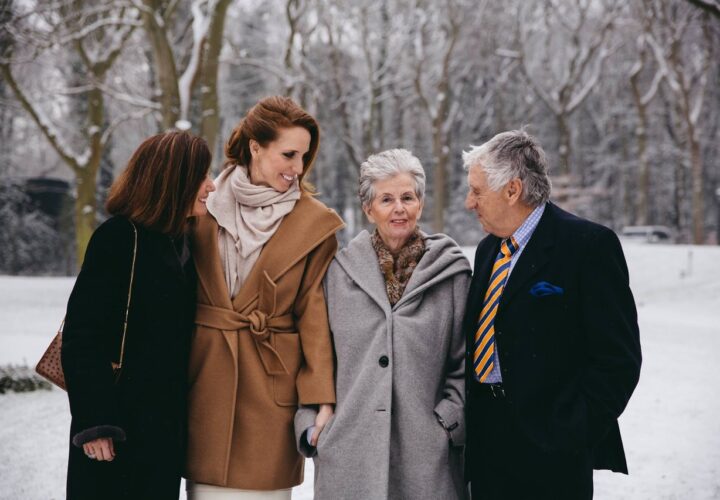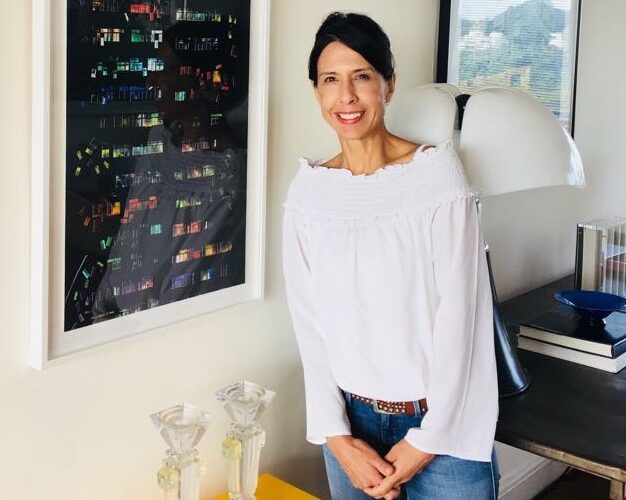Diane Rehm, whose husband John Rehm lived with Parkinson’s, shares her perspective on why people living with dementia deserves a say in their end of life.
When my late husband, John Rehm, was diagnosed with Parkinson’s Disease in 2005, my grandson, Ben, was just five years old. He saw his grandfather’s decline over the years, and watched as this once vigorous, athletic man evolved steadily into someone who needed care for even the simplest activities.
As the disease progressed, John experienced some of the elements of Lewy body dementia, a cluster of memory losses which often affects those suffering from Parkinson’s. In John’s case, it muddied his ability to think clearly, to recognize close friends, and to draw on his extraordinary intelligence. There is an impact on the brain similar to that which occurs in those who suffer from Alzheimer’s.
John and I talked at length about the kind of death he wanted, one where, when his time came, he could painlessly pass from this life into what he believed was the next, with the aid of medications prescribed by his physician. However, when this physician determined that John had six months or less to live, the law prevented John from receiving any medication to aid his passing. The only choice left for this man—this brilliant attorney and scholar, who could no longer feed himself, stand on his own, or toilet himself—was to stop taking food, medication, and water. For ten long and agonizing days, I stood by and watched him fall into a deep and restless sleep and finally, on the tenth day, achieve the relief he had so long sought. He died on June 23rd, 2014.
Since that time, California, Hawaii, and the District of Columbia have joined with Oregon, Colorado, Washington, Vermont and Montana to pass medical aid in dying laws. With some variations, these laws allow those with terminal illness who are deemed to be within six months of death to end their lives by obtaining medications from participating physicians. Though Oregon’s Death With Dignity Act has been in place for twenty years, there are still challenges being brought by those who oppose a person’s right to make that decision.
The District of Columbia’s Death With Dignity initiative was passed more than a year ago, yet thus far, not one patient has used it. Initially, this was because no physician would agree to participate. Now, with support from two doctors who’ve expressed willingness, those patients who have met the criteria can be assisted. However, D.C.’s law is being challenged by members of Congress who want to deny residents the right to make a choice for themselves.
I strongly believe that all of us deserve to have a say in how we die. If your religious beliefs tell you that God should be the only decider, I support you 100 percent. If you wish to have every option that medical science can provide to prolong your life, I support you 100 percent. However, if, like me, you want control over how and when your life ends, I support you 100 percent.
My belief in my right to self-determination is so strong that I am now working on a documentary titled “When My Time Comes,” directed by the Emmy-nominated documentary filmmaker Joe Fab. My hope is that this film will encourage people to talk more about the kind of death they want, and how medical aid in dying can be a true comfort to those who fear losing control, dignity, and autonomy at the end of life.
As part of that documentary, I asked my now eighteen-year-old grandson, Ben, to video on his cellphone a statement I wish to serve as a direction to my newlywed husband and my children. Our cameraman filmed Ben as he recorded me. In my statement, I say very clearly and without reservation that, should I become physically or mentally unable to care for myself, I would wish to use the Death With Dignity option. Further, should I feel I’ve become a burden to my family and to society, I would wish to end my life. If I am, at some point, diagnosed with Alzheimer’s, I want my decline to be monitored by my family, so that I can make a decision as to when to end my life before I am no longer considered capable of doing so.
I realize that this statement goes further than any law currently in effect allows. But I have heard so many sad stories of those with some form of dementia lingering for years, experiencing no real joy or understanding of what is happening to them, and I do not want my life to end that way.
For the past three years, Ben has had the good fortune to work in the laboratory of Dr. Reisa Sperling, the renowned neuroscientist at Brigham and Women’s Hospital in Boston. Her work is on the cutting edge of Alzheimer’s research, and Ben’s interest in Alzheimer’s has grown steadily because of his work with her. So now, as he prepares to begin college in the fall, I have issued a challenge to Ben: to find a cure for Alzheimer’s Disease. That may seem ridiculous, however, I believe in him, believe that his college and graduate education will prepare him to work productively with others who are focusing on the same daunting goal.
In the meantime, I will continue to work as hard as I can to encourage family members, husbands, wives, neighbors, and friends, to look squarely at death as a reality each of us faces. For too long, death has been a taboo subject in our society, though not one of us will evade it. Let’s talk about it with each other, engage our parents and children in the discussion, let them all know what we want, and so take hold of the fear and hope to work through it. In that way, we’ll be perhaps be more ready to face the inevitable, whenever it comes.
Diane Rehm hosted “The Diane Rehm Show” on NPR for 37 years and is a co-producer of the forthcoming documentary “When My Time Comes” and host of the podcast “On My Mind.”




Thank you, I support this 100 percent. Watching my mom die slowly at the young age of 60 and before her my grandmother her mother from this horrific disease called Alzheimer’s. I believe we all have the right to decide how our life ends. Please share with me how I can support.
I believe state senator Ron Young from Frederick, MD introduced Death With Dignity legislation for several years in the MD General Assembly, but always failed to pass. This was a conversation that never crossed our minds. As my late husband fell deeper and deeper into Alzheimer’s, I would pray to God to please take him before he became a vegetable. God answered my prayers. He had Alzheimer’s for 13 years and passed on January 24, 1999. I was fortunate that God placed another gift in my life and we will celebrate our 12th anniversary on August 26. He however tells me “just shoot me dear” or “put the gun in my left hand and leave.” This is disturbing to me and I could never do that. But I do agree with all your 100% statements. It should be our choice to decide.
Diane, I still miss your vivid voice on NPR, and I know I have a great deal of company here. I look forward to your upcoming documentary, and will now look for your podcast. Dementia has also touched my family, or more accurately, slammed it viciously.
I do agree with everyone who wants the law to permit Assisted Dying with the right criteria.
Walking thru the devastating disease of dementia with my mom. Her wishes were to not ever be a burden..to never go into a “home”. I cared for her for years until I couldn’t do it all any longer and moved her in to assisted living. She is 90 and so confused and lives in deep fear thinking she’s lost her baby. It’s the hardest thing I’ve ever had to watch and feel helpless. I was always against drs assisting people with their death. I believe that’s Gods decision on when it’s your time. I see it differently now after watching my mom suffer mentally. BUT…that said, she has no grasp that she is as bad as she is. In her worst moments she thinks she’s fine so would not make the decision that she is “done”. It’s heartbreaking! I pray your grandson finds that cure! It’s so desperately needed!!
I want to advocate to see our laws changed so that one can do a ‘Dementia Directive’ as part of a regular Advance Directive so we can instruct doctors and family members that we want to have drug induced sleep if we reach a point in that illness when we can no longer care for ourselves, know who people are, etc. My mom died of Lewy Body Dementia, and it was the most horrible thing I have ever seen…and my in-laws died from cancer and Alzheimer’s. My mom had written an advance directive years before stating that if she couldn’t bathe or toilet on her own or if she no longer knew who she was or anyone else, she wanted to go to sleep with the help of a doctor. Unfortunately, we were unable to help her with her instructions due to the California End of Life Option law not including dementia. Even though she was in hospice, they were unable to give her enough medication to help her be more peaceful due to the hospice worried about ‘overdosing’ her, which was ridiculous, since she was terminal. Eventually, she had hallucinations that the building was on fire, that people were trying to murder her and repeatedly was asked to leave memory care facilities due to her behavior being a danger to others. It was terrible, and we shuddered just thinking how horrified this dignified lady would have been if she could see herself at the end of her life. I’m still bitter and sad that as her daughter, I was unable to give her final wish – a dignified, comfortable and peaceful death. It’s beyond stupid that a civilized country can’t face up the fact that we’re all going to die and that everyone deserves the right to state in writing what comfort they want in death if they’re unable to take care of themselves. This should be done by a physician…not family members! We don’t have time to ‘wait for a cure’ here. My sister and I are terrified that we’re going to go through the same thing, and we have no intention of putting ourselves or our families through this. If it means we have to go to Europe for it or do a VSED (stop eating and drinking), then so be it. Most people I know feel the same way. I found this website because I was looking to see if there was any legislative action on this issue yet. I’ve already written to my representatives. I hope we can work as a group to make this happen!
I agree with everything that Kathy has said, and my frustration is equally intense. My Mom’s decline with Lewy Body Dementia the past 5 years has also included paranoid delusions, frightening hallucinations, and complications of severe osteoporosis which has ravaged her joints and spine and rendered her completely dependent on others. About 3 years ago my Mom asked me if I could give her a pill to die, as she was in so much pain and bedridden. I had to tell her it was not legal for mild cognitive impairment (at the time), and have tried very hard to find joys for her within her progressive misery. Even more distressing, I share the same ApoE4 allele that my Mom has which increases my risk to a 50/50 chance of having the same disease around 65 or 70 years old. I am glad to have found this article by Diane, and I am so thankful for the forthcoming documentary Diane is co-producing. More awareness will help the cause! I am a physician in primary care/urgent care for over 25 years, and I am realizing that this is my new passion: helping to make a Dementia Directive a reality nationwide. There is a tsunami of dementia swelling and I see it daily in my practice as well. I wish to join a physician’s movement that will help pass legislation here in the U.S. for proactive measures. We should not have to travel to Europe to have the freedom of a choice at the end of life granted in the case of cognitive disorders, and I am hopeful that within a decade this Dementia Directive idea will become a legal reality in America. Please direct me to any medical organizations or legal representatives that are working on this.
i would like to join
I am 53 years old and diagnosed with mild Cognative disorder, increasing my odds for early onset dementia. My grandmother and all her siblings had Alzheimer by the age of 65. I do not want to put my children and grandchild through the misery of this disease. I should be able to choose today while capable of making the decision how to die once I can no longer care for myself. A disease of the mind is more devastating to the patient and family then a disease of the body.
What can I do today to push this forward? I live in Washington State, we have death with dignity but only for a physical disability. I want to die in peace.
My sil, 77 has alzheimers, and due to her husband and me to a certain extent, is very happy at home. But seeing her husband grieve at the continual loss of his relationship with his wife is difficult. As he is getting older, it is likely he will physically be unable to care for her, his worry and fear for her is heart rending but is SUCH an example of faithful love and devotion, our whole familybis seeing a living breathing picture of dedicated love.
I support the “Death With Dignity” option 100% and like Ms Rehm believe people should have the option they choose. My father died from Parkinson’s disease and my mother Dementia both a slow unpeaceful death. When animals are suffering they are humanly put down. Why cant this be for humans who want “Death With Dignity” in every state? How can I help the laws to allow “Death With Dignity”? California voted for it but they overturned the law.
My mother passed away from Lewy Body Dementia. I echo the sentiments expressed above. My new cause is to advocate for medical aid in dying or death with dignity for those with dementia. I am just beginning to do the research on how to help make this happen.